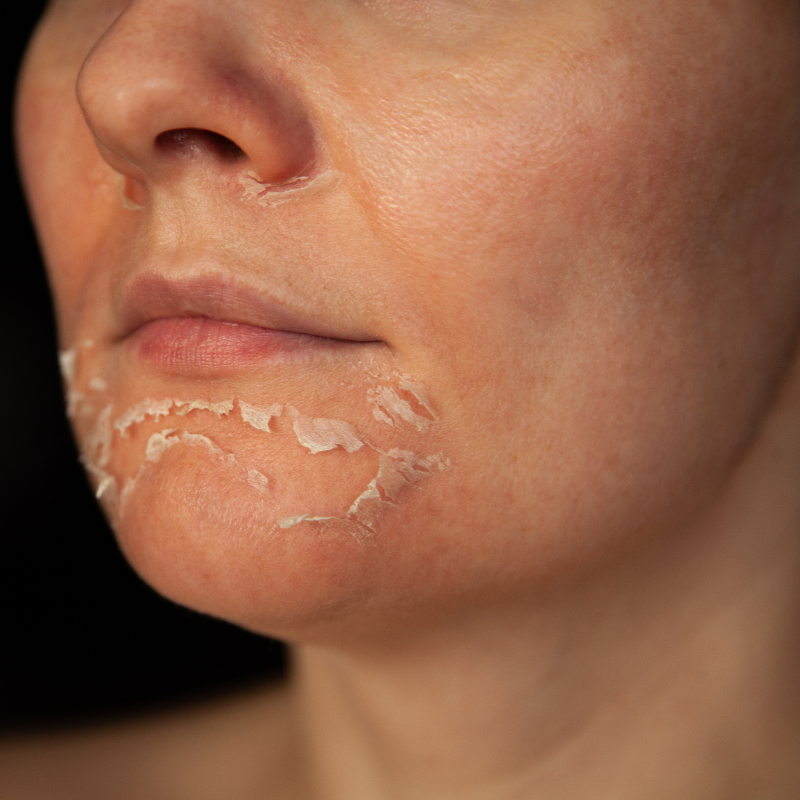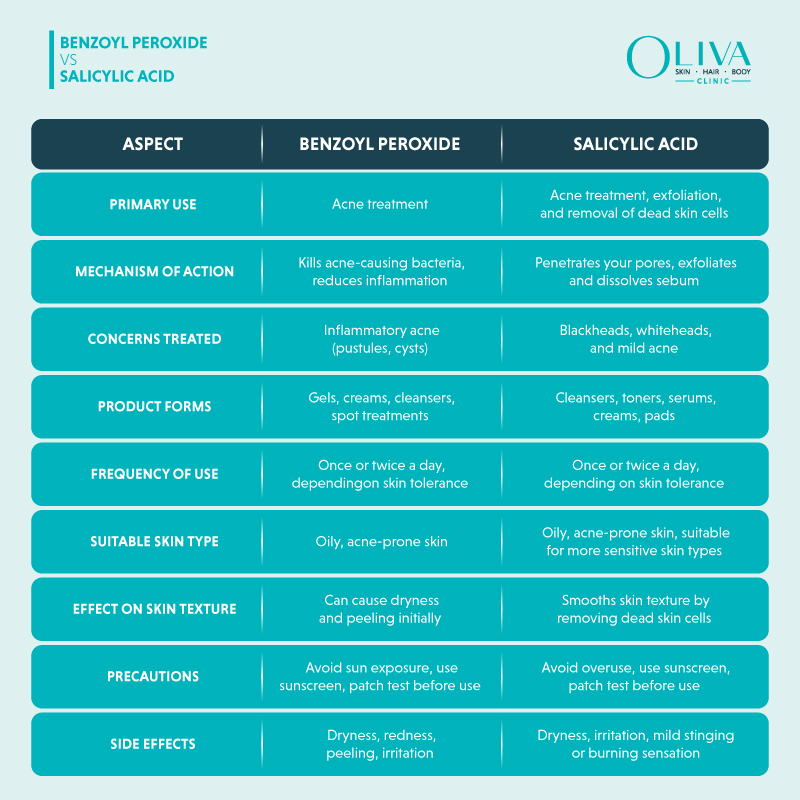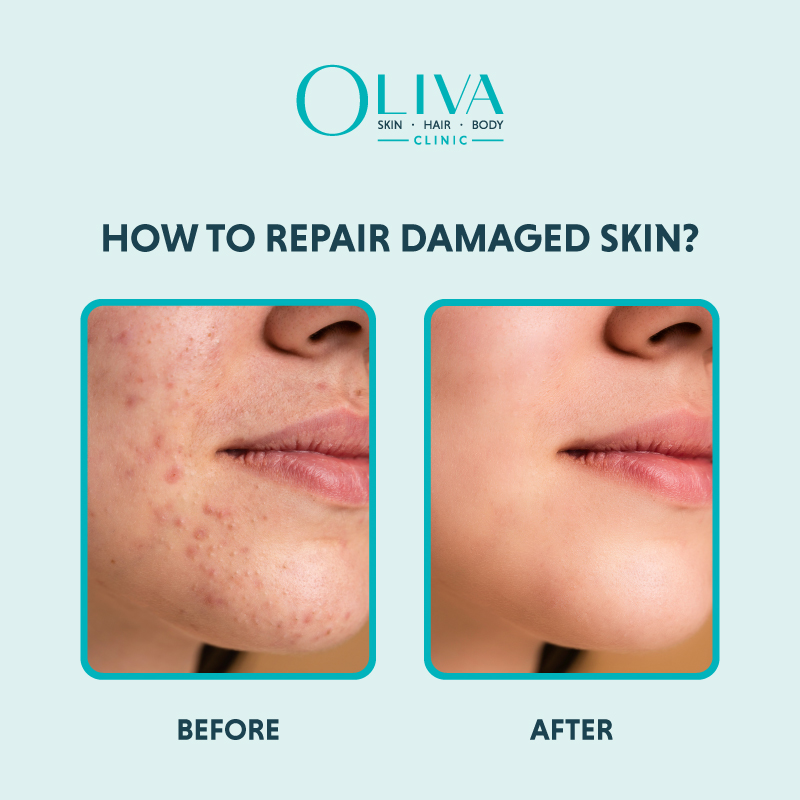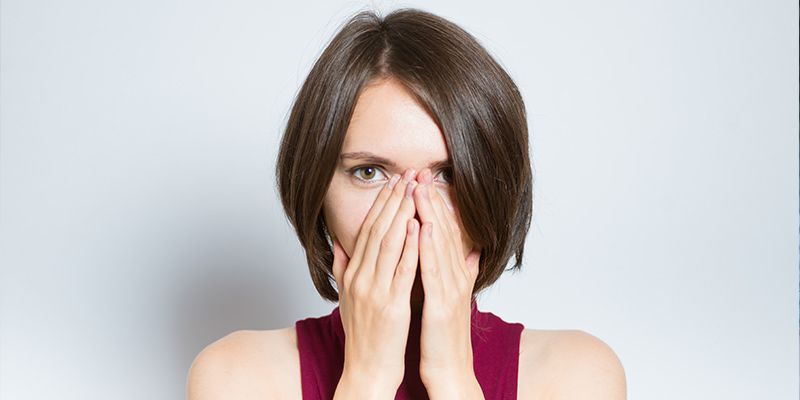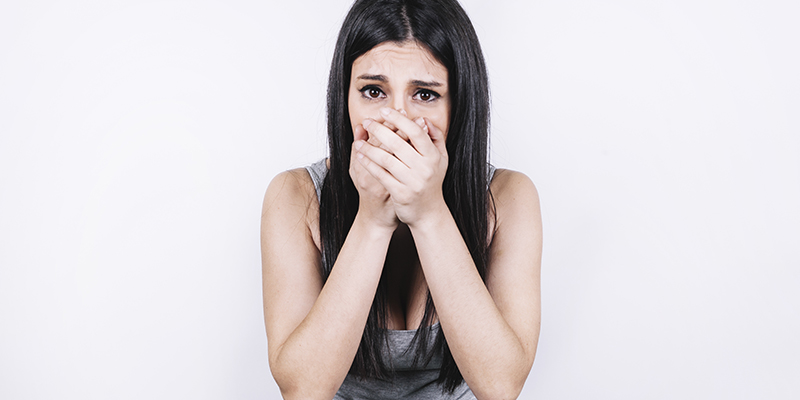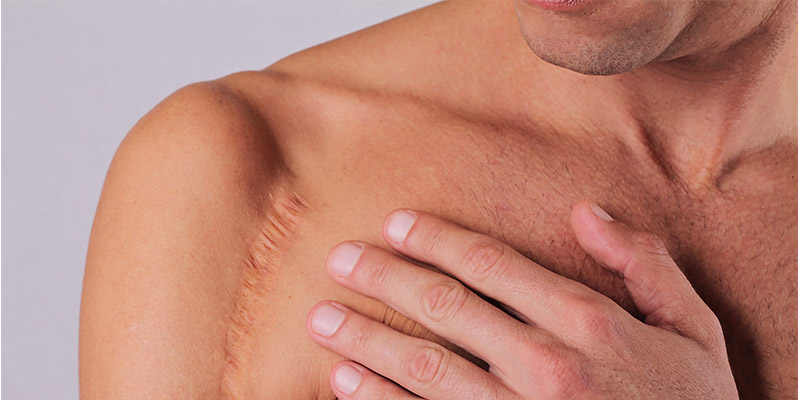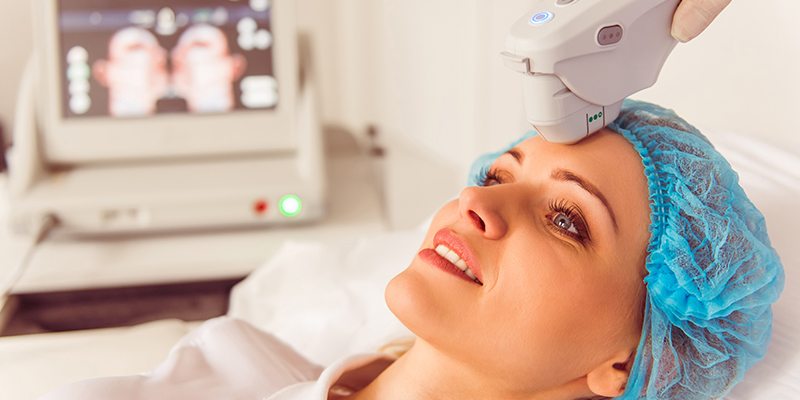Skin Peeling On Face: Causes, Treatments, Home Remedies & Prevention
Are you worried about your peeling skin? Are you wondering what could be the reason behind the skin peeling on face and hands or anywhere else on the body? Well, skin peeling, also called skin desquamation, is usually the body’s healing response to certain skin ailments, medication side effects, or disease response. By peeling, the skin removes dead cells and enables the growth of new cells.
Several factors, like an improper skincare routine, use of harsh products, exposure to sunlight, etc., can aggravate the condition. Though skin peeling is normal, you should seek medical help if it is severe or persistent.
Read on for more information about its causes, skin peeling treatment, and some home remedies that might help.
What is Skin Peeling?
Skin peeling is when the top layer of your skin sheds to reveal newer, healthier skin beneath. This is the result of damage from infections, allergies, exposure to pollution, and certain treatments.[1] This is the body’s natural healing process and a part of the renewal cycle wherein the dead skin cells clear up to improve the texture and complexion of your skin.
What Does Peeling Skin Look Like?
When the epidermal layer, or the topmost layer of the skin that has a protective function peels, it may appear dry and flaky, with scaly patches. Though very thin, the epidermis plays a vital role in shielding your skin from environmental damage, infections, bacteria and allergies. It generates new cells to replace the dead cells that shed naturally, thus rejuvenating your skin from time to time.
Causes of Skin Peeling
There are plenty of reasons why skin peeling occurs. Here are some of the most common ones, categorised broadly for easy understanding:
Skin Damage:
Physical trauma or environmental factors can cause your skin to peel:
- Burns: These could be thermal burns (from heat), chemical burns (from substances), and electrical burns. They can all damage the skin, resulting in peeling when the skin heals.
- Skin Irritation From Friction: Repeated friction, such as from tight clothing or vigorous rubbing, can cause the outer layer of skin to peel away.
- Sunburns: Overexposure to UV rays from the sun can damage skin cells. Sunburnt skin is inflamed and peels as it heals.
Inflammatory Or Genetic Diseases:
Many inflammatory conditions or genetic disorders can cause the skin to peel. Some examples are given below:
- Kawasaki Disease: This infectious disease causes a general rash around the groin area and leads to skin peeling.
- Peeling Skin Syndrome: This skin syndrome is a genetic condition characterised by painless skin peeling.[2]
Skin Conditions:
Various skin conditions and allergic reactions can result in peeling:
- Allergic Reactions: Conditions like contact dermatitis and skin rashes can cause peeling. Stevens-Johnson syndrome is a severe reaction often triggered by medications or infections, leading to extensive skin peeling.
- Fungal Infections: In conditions like Athlete’s Foot and Jock Itch, the skin starts to peel. In Athlete’s Foot, a fungal infection causes scaly rashes that sting or burn. The signs of this condition are scaly, peeling or cracked skin between the toes.
- Dry Skin: Extremely dry skin can crack and peel, particularly in harsh weather conditions or due to underlying health issues.
- Oedema: Fluid retention can cause swelling, leading to skin stretching and peeling, especially in severe or prolonged swelling.
- Pemphigus: A group of rare autoimmune diseases that cause blistering and peeling of the skin and mucous membranes.
- Seborrhoeic Dermatitis: This condition occurs in areas like the scalp where sebaceous glands are over extended. Seborrhoeic dermatitis is also referred to as dandruff and can occur in any hairy region in the body.
- Eczema: This is a chronic skin disease that makes your skin dry and itchy. This condition occurs when your skin barrier, which protects and helps retain moisture in your skin, becomes weak. It can cause inflammation and scaling, often resulting in peeling.[3]
- Psoriasis: It is a chronic inflammatory disease. Pink or red rashes covered with white peeling skin appear on any part of the body. Generally, it appears on the knee, scalp, or elbows.
- Contact Dermatitis: It is a condition that occurs when allergens like cosmetics or perfumes come into direct contact with your skin. You develop itching, redness, wounds, or blisters within 12 hours of contact.
Infectious Diseases:
Infections caused by bacteria, viruses, or fungi can lead to skin peeling:[4]
- Group-A Streptococcal Infections: These infections cause scarlet fever, giving a red, sandpaper-like rash. This eventually results in peeling when the skin starts to heal.
- Staph Infections: These are common bacterial infections like impetigo that cause sores and blisters that can peel as they heal.
- Toxic Shock Syndrome: This is a life-threatening condition caused by toxins. In this case, widespread skin peeling occurs, especially on the palms and soles.
Treatments:
Certain medical treatments and medications can induce skin peeling:
- Acne Treatments: Topical treatments, especially creams, serums, lotions and ointments containing retinoids or benzoyl peroxide, can cause the skin to peel as they accelerate cell turnover.
- Anti-Ageing Treatments: Products and treatments like retinol creams, chemical peels, and microdermabrasion promote exfoliation and can lead to temporary skin peeling as they rejuvenate the skin.
- Cancer Treatments: Radiation therapy and chemotherapy can damage rapidly dividing skin cells, leading to peeling and other skin changes.
- Medications And Supplements: Some medications, vitamins, and herbal supplements can cause skin reactions, including peeling, either as a side effect or due to an allergic reaction.
Environmental Factors:
Environmental factors like pollution, heat, humidity, etc., irritate and damage your skin. Continuous irritation leads to skin peeling.
Lifestyle And Habits:
An individual’s lifestyle and habits have a s impact on skin health. For instance:
- Dehydration can cause dry skin and scaling, which eventually starts peeling. Keeping yourself hydrated is essential to maintain skin health.
- A diet lacking essential vitamins and minerals like vitamins E, C and omega-3 fatty acids, can lead to conditions that result in skin peeling.
- Going outdoors without proper protection from UV rays can cause skin dryness and peeling.
- Using skincare products with harsh chemicals strips the skin of natural oils, causing irritation that can lead to skin peeling.
- Hot showers can reduce the natural oils, leading to dryness and peeling.
- Lack of sleep disrupts the natural healing process, leading to dryness and flaking.
- Smoking and excess alcohol intake dehydrates your skin. Your skin becomes dry and starts peeling.
When To See A Dermatologist?
Skin peeling, triggered by environmental factors like heat or humidity, normally fades away within two to seven days. If the skin peeling is persistent and continuous, you should seek the advice of a dermatologist. You should consult a doctor immediately if:
- The peeling is associated with fever or chills.
- Nausea or dizziness sets in, along with skin peeling.
- Skin gives out a yellow liquid, smells bad, or cracks, and bleeding continues.
- Blisters appear on large areas of your body.
Diagnosis Of Skin Peeling
You must consult a dermatologist to determine the exact cause of skin peeling. They will ask about your symptoms, medical history, and existing medications for a proper evaluation. To diagnose or rule out conditions that might cause skin peeling, you may be prescribed certain tests, including allergy screening, biopsy, and blood tests.
How To Treat Skin Peeling on Face?
Depending upon the severity of the problem, your skin condition, and the cause, skin peeling on the face has several treatment options.
-
Home Remedies:
If the skin peeling is not aggressive, you can try natural ingredients that have moisturising and nourishing benefits for the skin and are effective against many skin issues. You can learn more about these in the following section.
-
Prescription Medications:
You may need to consult a dermatologist if the peeling persists to get the underlying cause diagnosed. Prescription medications in accurate dosage and frequency help manage skin peeling effectively.
-
In-Clinic Skin Peeling Treatment Options:
These could include treatments such as chemical peeling, microdermabrasion, dermabrasion, and laser skin resurfacing. Experienced dermatologists recommend them based on the extent of your skin damage and the improvement you wish to see.
What Are Home Remedies For Skin Peeling?
If the skin peeling on face is not aggressive, you can manage it with effective peeling treatments at home. These are usually non-allergic and safe.
Here are some things you can use to manage skin peeling:
-
Aloe Vera:
Apply aloe vera gel frequently. Its anti-inflammatory and cooling properties will help reduce itching and inflammation associated with skin peeling.[5]
-
Oatmeal Bath:
Oatmeal has soothing and anti-inflammatory properties and is generally used to treat allergic reactions on the skin. An oatmeal soak bath for 15 minutes followed by a shower is a good remedy for skin peeling.
-
Moisturiser:
Using a natural moisturiser hydrates your skin and prevents drying and skin peeling. Apply a moisturiser that contains cocoa or shea butter, lanolin, hyaluronic acid or lactic acid.
-
Cortisone Creams:
This is an over-the-counter cream which will reduce inflammation and heal the skin. It is commonly used for skin peeling caused by psoriasis or atopic dermatitis.
-
Coconut Oil:
The emollient property of coconut oil helps repair the skin barrier[6] which protects your skin from environmental damage. It retains the skin’s moisture and prevents pores from clogging, helping maintain the skin’s natural pH balance.
-
Honey:
Honey is a natural moisturiser. Applying honey to your skin and allowing it to remain for 30 minutes will hydrate and prevent drying. It has antioxidant properties that repair damaged skin.[7]
-
Petroleum Jelly:
Petroleum jelly creates a protective barrier on the skin that helps retain moisture. This prevents your skin from flaking and cracking.
-
Cucumber:
The nutrients in cucumber boost skin health. Applying cucumber directly onto the skin helps cool and soothe the skin. It also reduces inflammation and irritation.
-
Olive Oil:
Olive oil moisturises the skin and prevents further peeling. Apply a thin film of olive oil onto the affected area. Allow to remain for some time before washing for the best results.
-
Milk:
The lactic acid in the milk exfoliates and hydrates the skin. Apply milk to the affected area and leave it for 10 to 15 minutes. Wash off with cold water for a smooth, glowing skin.
-
Analgesic:
Taking over-the-counter analgesics can help peeling skin that is sore or painful. However, you must always consult a dermatologist before opting for an analgesic.
How Do Dermatologists Treat Skin Peeling?
The skin peeling treatment suggested by a dermatologist depends on the underlying cause and gravity of skin peeling. The options include:
-
Allergy Medications:
Allergy medications block chemicals in your body that cause allergic reactions. Your dermatologist will assess your skin through allergy tests to find the allergen and give the appropriate treatment.
-
Antibiotics:
These medicines help fight bacterial infections. If the skin peeling is from an infection, dermatologists will prescribe topical or oral antibiotics for relief.
-
Antifungals:
When your skin condition is due to any fungal infection, antifungals can destroy or prevent it from growing further. Among the various antifungal medicines, your healthcare provider will suggest the best that suits your condition.
-
Corticosteroids:
These are anti-inflammatory drugs that keep rashes and swelling at bay. Corticosteroids, commonly referred to as steroids, reduce the production of chemicals that cause inflammation.
-
Non-Steroidal Anti-Inflammatory Drugs (NSAID):
NSAIDs are medications that reduce inflammation. Both prescription and non-prescription medications are available. The dermatologist will administer the drug depending on the cause and severity of skin peeling or skin desquamation.
How To Prevent Skin From Peeling?
Here are some tips that can help prevent your skin from peeling:
-
Keep Yourself Hydrated:
Make it a habit to sip water throughout the day. A minimum of 8 to 10 glasses of water helps retain skin moisture and prevents drying.
-
Protect Your Skin:
Cover the peeling skin with a cloth or apply a sunscreen lotion with a good SPF to prevent further damage. Exposure to the sun can dry your skin and aggravate peeling. Cover peeling areas with protective clothing to avoid overexposure to the sun.
-
Use A Humidifier:
Using a humidifier keeps the air moist, and as a result, it helps your skin retain its moisture. This especially proves helpful in summer months or if you stay in extremely dry regions.
-
Cool Compress:
If your skin feels over-flaky, inflamed or itchy, place a cool and wet compress on it for 20 to 30 minutes. This will help soothe irritation, prevent you from scratching it and reduce skin peeling.
-
Cleansing:
Regular cleansing removes toxins and unclogs the pores. It helps retain skin moisture and prevents drying. Always opt for a mild, chemical-free cleanser.
-
Exfoliation:
Exfoliation removes dead and damaged skin. Exfoliators available in the market can be used, or you can prepare an exfoliator using olive oil and granulated sugar at home. To prevent damage, use a gentle circulating action to scrub your skin. Avoid this step if your skin is sensitive and consult a dermatologist.
-
Take A Cool Bath:
This can help reduce the pain and prevent further skin peeling. Avoid showers if you have blisters along with skin peeling, as it will open up the blisters and trigger further peeling.
-
Avoid Bathing With Hot Water:
The heat from the water can be harsh on the peeling skin. The steam opens the pores and makes the skin more vulnerable to infections.
-
Dry Your Face Gently:
Do not scrub your face with a towel. This can increase skin peeling on face. Instead, pat dry your face with a clean and soft towel.
-
Wear Gloves:
Wear gloves if you are consistently in contact with water. Continuous exposure to water washes out the natural oils and makes the skin dry.
-
Avoid Irritation:
Avoid exposure to any substance that irritates your skin. It interferes with your skin healing and puts you at more risk for infection.
-
Use Gentle Soap:
Harsh chemicals in soaps can dehydrate your skin and make it dry. Use gentle soap to retain skin moisture. It is also advisable to use a non-foaming cleanser without perfume.
-
Reduce Stress:
Stress can aggravate skin conditions like eczema. Managing stress leads to healthier skin as it prevents the skin’s inflammatory responses from worsening the condition. Yoga and meditation can help manage stress.
Takeaway
Skin peeling can result from environmental factors like pollution, heat, UV rays, or any underlying skin conditions. But you can prevent it with a proper skin care routine that includes cleansing, moisturising, exfoliating, and applying sunscreen daily.
If the peeling persists despite proper care, you must consult an experienced dermatologist for expert guidance and solutions. Though a lot of people use over-the-counter applications and home remedies, it may not work the same way for everyone. They can lead to severe side effects. Make sure that you consult an experienced dermatologist who can help you manage your skin health as per your unique needs.


